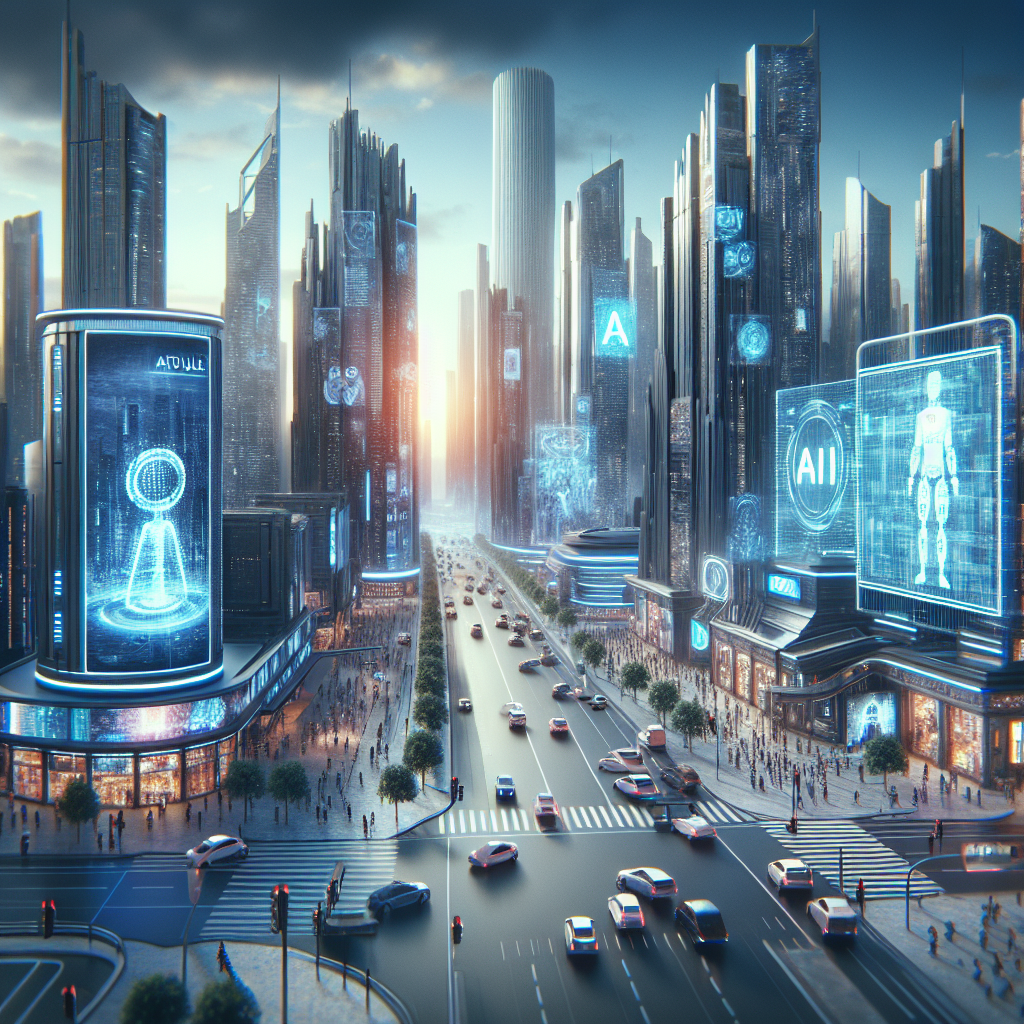The Potentials and Perils of AI: A Philosophical and Practical Exploration
Artificial Intelligence (AI) has been a hot topic in technology circles for several years, inspiring both awe and anxiety among experts and laypeople alike. Today, we delve deep into the essence of AI, its potential, and the ethical conundrums it poses. This article draws from insights shared by Matthew Bell, a YouTuber known for his in-depth discussions on AI technology, to provide a comprehensive analysis of where AI stands and where it might lead us.
Defining AI: Beyond the Buzzwords
AI, often depicted as futuristic and complex, actually has a fairly straightforward definition. It involves computer systems that can perform tasks traditionally requiring human intelligence. This includes generating text, images, videos, and even making logical deductions based on input data. The most familiar example is ChatGPT, a model that produces text outputs from textual inputs. However, AI's ability to generate coherent language is just the tip of the iceberg. The true power lies in its capability to reason, innovate, and solve problems far beyond the current human capacity.
To understand the significance of AI, we must recognize the foundational role of language. Language is a tool that allows us to define and share ideas, making collective advancement possible. AI's proficiency in language thus positions it as a transformative force, potentially capable of solving complex global issues.
The Profound Impact of AI on Society
Imagine traveling back in time to the medieval era with a book detailing the production of antibiotics. This hypothetical scenario illustrates the disruptive and beneficial impact that advanced knowledge can have on society. In a similar vein, AI serves as a modern Pandora's Box, brimming with solutions for some of the most pressing problems humanity faces. From eradicating diseases to creating sustainable energy sources, the possibilities seem limitless. The fundamental question is not whether AI can achieve these feats, but rather how and at what cost.
Navigating the Duality of AI: A Double-Edged Sword
AI's immense power brings with it significant risks. It's crucial to acknowledge that any potent technology can be wielded for both good and bad purposes. Historical examples abound: advanced metallurgy made iron tools possible but also enabled more effective weapons; explosives transformed construction and warfare alike. AI is no different; its capacity for good is matched by potential threats. For example, while AI can dramatically reduce costs and increase efficiency, it can also displace human workers, leading to economic and social upheavals.
Consider the case of artists: AI-generated art can outperform human creators in terms of speed and cost, potentially rendering many artistic jobs obsolete. This presents a moral dilemma. On one hand, the democratization of art through AI could lead to broader access and reduced costs. On the other hand, it could devastate the livelihoods of those who rely on their creative skills.
Mitigating Risks: Ethical and Practical Considerations
The challenge lies in maximizing AI's benefits while minimizing its risks. Achieving this balance requires a nuanced understanding of ethics and practicality. For instance, incorporating ethical guidelines into AI development can prevent misuse and ensure fairness. However, defining what is ethical can be contentious, as perspectives on what constitutes good or bad vary widely.
One approach to mitigating AI's negative impact is through robust regulatory frameworks that safeguard against harmful uses while promoting innovation. Additionally, ethical AI development must involve diverse voices, ensuring that varied perspectives are considered.
For further reading on ethical AI practices, you might find this discussion on ethical AI by the World Economic Forum insightful.
The Economic Paradigm Shift: Towards a Non-Economic Model?
One of the most intriguing propositions is whether AI could eventually eliminate the need for traditional economic models. If AI becomes capable of managing all production and services more efficiently than humans, it could fundamentally alter our socio-economic structures. This potential shift raises several questions: How would we transition to a society where human labor is no longer economically valuable? Could we create a system where AI handles production, allowing humans to pursue passions without economic constraints?
While this vision may seem utopian, it underscores the transformative potential of AI. Achieving such a future would require unprecedented cooperation and innovation, addressing both logistical and ethical challenges. The current stage of AI development is merely the beginning, and the path forward is fraught with complexities and uncertainties.
For more on the economic impact of AI, you can explore this comprehensive analysis by McKinsey & Company.
Conclusion: Embracing a Collaborative Future with AI
As we navigate the evolving landscape of AI, it's crucial to keep an open dialogue. Matthew Bell's insights highlight the importance of collective discussion in shaping a future that harnesses AI's potential while addressing its challenges. By engaging with diverse perspectives and critically assessing AI's development, we can work towards a future where technology serves humanity's best interests.
The journey towards fully understanding and integrating AI into our lives is complex and ongoing. It requires balancing innovation with caution, ensuring that the technology we develop today does not undermine the world of tomorrow. Engage in conversations, question assumptions, and together, we can shape a future where AI is a force for good.
For a more detailed discussion on these topics, you can visit Matthew Bell's channel on YouTube here.
By critically examining AI technology and fostering community dialogue, we can navigate the potential perils and opportunities it presents, striving for a balanced and beneficial future.
Related News
- The Evolution and Potential Perils of Artificial Intelligence
- Navigating the Labyrinth: The Rise of AI and Its Implications
- Navigating the Complex World of AI: A Dive into Recent Developments and Controversies
- AI: The Thrilling Frontier of Human Ingenuity and Technology
- The Tipping Point: Navigating the Uncharted Waters of Advanced AI
